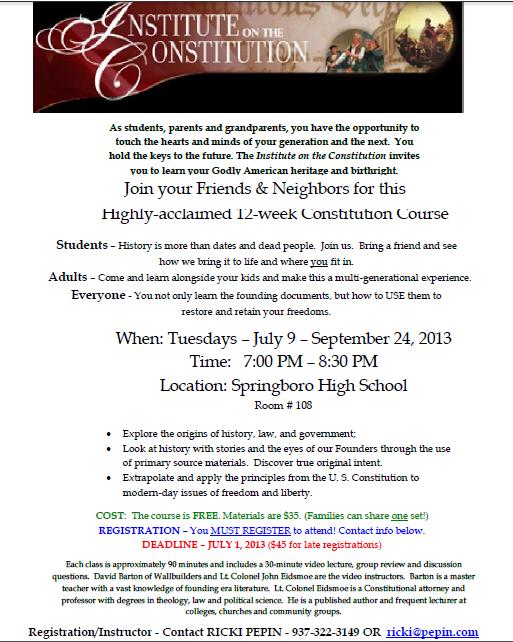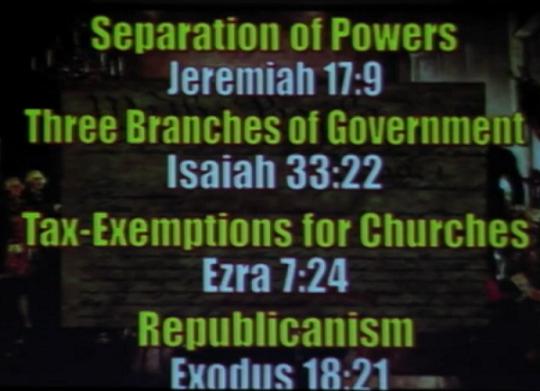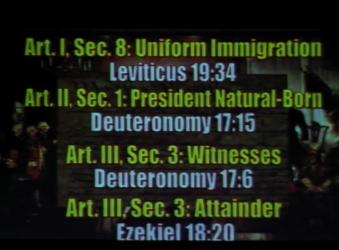Facts are pesky.
On July 19, Steve Deace interviewed David Barton (at 24:12 in hour 3) in Iowa after the big political confab there with Ted Cruz and Rand Paul. Deace asked Barton to describe the controversy over The Jefferson Lies (now approaching a year ago). He also asked if there was any substance to the criticism.
Barton said a bunch of stuff he usually says about it (e.g., publisher Thomas Nelson got scared of the scary professors, etc.). Then he said:
You’ve got about 6,000 universities in America and they found four professors who criticized what I did. Well, 6,000 universities, you probably have 60,000 professors and they found four who didn’t like it.
Well, we all know who two of them are. But just four? I think he forgot some. Last August, World Magazine reported that Jay Richards assembled 10 Christian professors who expressed a negative response to the book. Then there was Clay Jenkinson, and Martin Marty, and John Fea, and Paul Harvey, and Regent University’s Chuck Dunn, and Greg Forster, and Gregg Frazer and Steven Green. And then there were the 650 voters in the History News Network poll who helped Barton squeak out the Least Credible History Book in Print designation, just beating out Howard Zinn’s “A People’s History of the United States.” Then more recently, 34 Christian history and social science professors approached Family Research Council about the Capitol Tour video (which FRC removed from view due to the errors).
Please note that most of the people referred to in this post are evangelical Christians.
Christian publisher Thomas Nelson’s reasons for pulling the book were expressed in World’s report:
The publisher “was contacted by a number of people expressing concerns about [The Jefferson Lies].” The company began to evaluate the criticisms, Harrell said, and “in the course of our review learned that there were some historical details included in the book that were not adequately supported. Because of these deficiencies we decided that it was in the best interest of our readers to stop the publication and distribution.”
Need to refresh your memory? See the World coverage here and here
UPDATE: Readers have reminded me of some additional historian/professors who have had negative things to say about The Jefferson Lies. Let’s add Daniel Dreisbach, Kevin Gutzman, and James Stoner, and Miles Mullin and John David Wilsey and Randall J. Stephens and Karl W. Giberson.
P.S. He still is completely botching the Jefferson Bible…
P.P.S. Are you a professor? Email or tweet to add your name, or leave your name in the comments.
English prof Jeff Sharlet and Religious Studies prof Julie Ingersoll have added their names to the “four.”
Add History professors Jared Burkholder, Jay Case, Brenda Schoolfield, Keith Beutler, Joseph Moore, Scott Culpepper, Bobby Griffith, Paul Fessler, Jason Dikes, Chris Gehrz, Chris Cantwell, Jonathan Wilson, Alan Snyder, Glenn Sunshine, Philip Perdue, and Rachel Larson, and also Religious Studies profs Michael J. Altman and P.C. Kemeny to the list of profs. Independent historian Michael Miles concurs.
Glad to add Yoni Appelbaum, GCC colleague Dan Brown (the entire GCC history dept is included in the 34 profs who wrote to FRC), math prof Sharon McCathern, Environmental Ethics prof Bron Taylor and English prof Steve Roberts.
UPDATE: Steve Deace posted my rebuttal to Barton.


